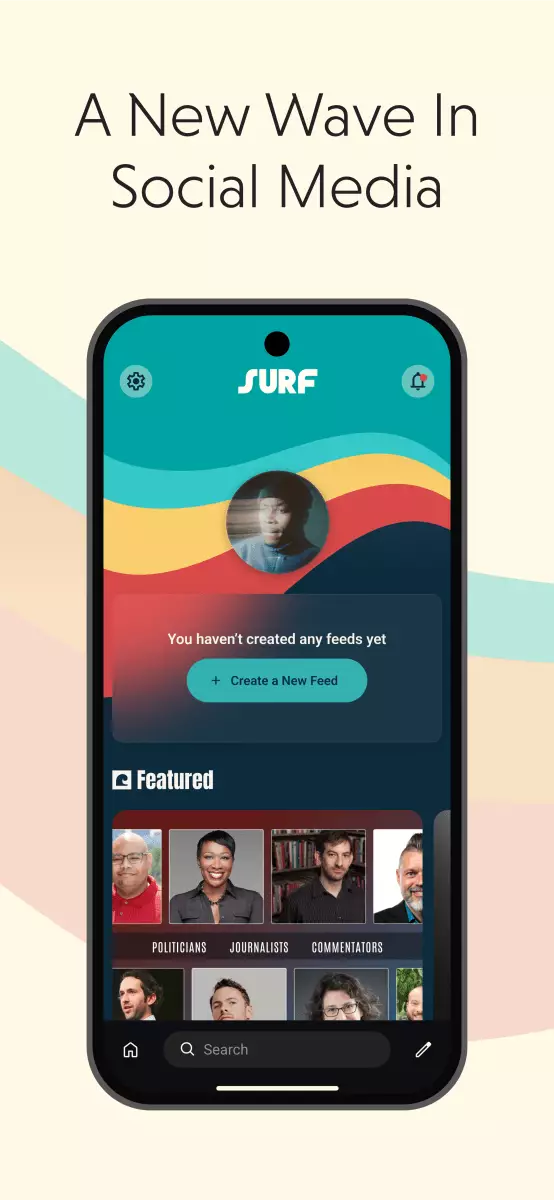In a rapidly evolving digital landscape, social media platforms are continually adapting to new challenges and user demands. The recent ban on TikTok has catalyzed a significant shift among platforms, with Bluesky moving to develop a custom feed for video content. This led to the launch of Surf, an innovative app developed by Flipboard, dedicated to traversing the open social web and integrating decentralized services like Bluesky and Mastodon. This shift represents not just a reaction to regulatory changes but a broader movement toward decentralized social media solutions that prioritize user engagement and control over content.
The launch of Surf’s video feed is a direct reflection of the existent demand for diversified content sharing methods, particularly during a time when traditional platforms are often perceived as closed, algorithm-driven environments. Initially, Surf’s offering includes a blend of trending videos from Bluesky and content designated with the hashtag #SkyTok. This unique combination serves as an opportunity for users to explore video content that is not only compelling but also reflective of current trends on the platform. The timeline is not only a showcase of creativity but an exploration of community-driven interactions that are too often overlooked in mainstream social media environments.
As the landscape shifts, Flipboard has signaled an intention to further customize the Surf video feed. Incorporating users’ following timelines from Bluesky will create a personalized experience where individuals can discover videos from those they choose to engage with directly. This represents a move toward a user-centric approach that prioritizes authenticity and relevancy in social media interactions.
Flipboard’s CEO Mike McCue highlights the potential of custom feeds as a revolutionary aspect of social media engagement. By allowing third-party entities like Surf to build innovative features utilizing existing platforms, the company fosters a culture of open collaboration rather than competition. The widespread adoption of protocols such as AT Proto further enables this environment, allowing developers to create applications that amplify the capabilities of established social networks while retaining the agility and creativity that characterize independent platforms.
This collaborative innovation becomes especially pertinent as the app world grapples with challenges that arise from larger tech companies’ dominance. With platforms like Bluesky embracing third-party applications as extensions rather than rivals, the traditional notion of “walled gardens” in social media is being dismantled. Users now have control over how they consume and share content, pushing against the centralization that has long characterized the industry.
Surf’s aspirations extend beyond merely being an alternative video feed for Bluesky. McCue’s vision embraces a broader spectrum of content through innovative hashtags like #BookTok and #BookSky, which resonate with users interested in literature and literary discussions. By including video content from various platforms such as YouTube and Threads through a federated system, Surf is carving out a niche where diverse voices and topics can coexist and flourish.
This ability to interconnect various social media services not only enhances user experience but also signifies a return to the pre-social media days where content sharing was about openness and exploration. Users are encouraged to delve into their interests without the limitations imposed by singular platforms, thereby fostering communities based on shared passions and topics across different mediums.
As Surf prepares for a wider release after its beta phase, it is essential to consider the implications this could have on the future of social media. With each new development, platforms like Surf are redefining the parameters of online interaction. By allowing curated and personalized feeds, emphasis is placed not just on entertainment but on fostering meaningful connections among users.
The shift towards decentralization may serve as a turning point for social media, emphasizing user agency and community-driven interactions. As we move forward, it will be fascinating to observe how these innovations will not only reshape the digital landscape but also empower users in unprecedented ways. In this new paradigm, platforms that emphasize flexibility, innovation, and user engagement are likely to thrive in the increasingly competitive and dynamic world of social media.

